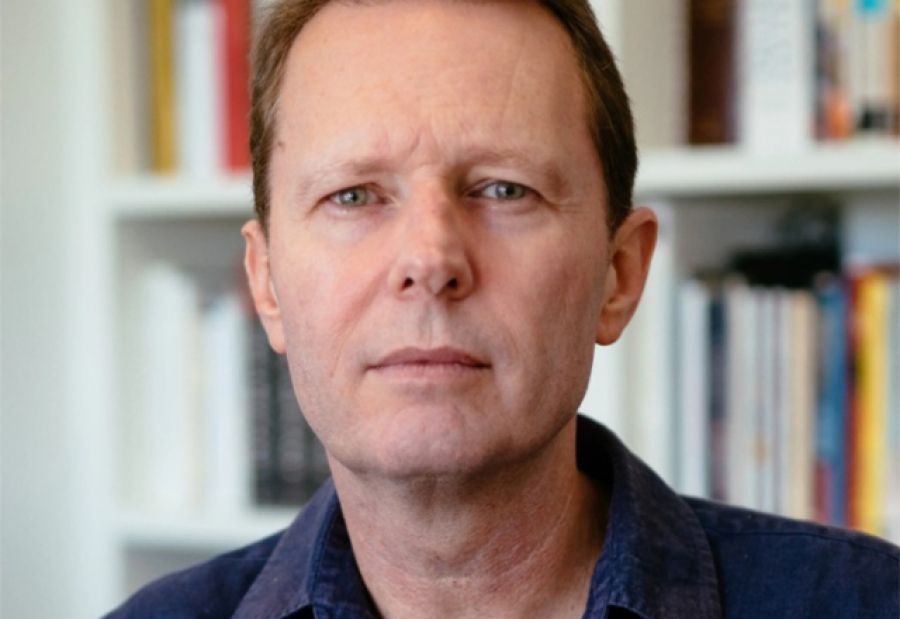
- Free Article: No
- Contents Category: Poet of the Month
- Custom Article Title: David McCooey is Poet of the Month
- Review Article: Yes
- Custom Highlight Text:
When writing and recording music, I often just start with a technical ‘problem’. (How does parallel compression work? What does this plug-in do?) In contrast, the low-tech and ‘invisible’ nature of writing tends not to engender such creative problem-solving, so I admire those writers, such as John Tranter, who can embrace ‘proceduralist’ strategies.
There are also photographers. Robert Adams’s Summer Nights, Walking is the visual equivalent of a certain ideal poem I’d like to write. The biggest influence, though, is the poet and fiction writer Maria Takolander. Being lucky enough to be married to her, I have learned more from her than I could say here.
Are poems ‘inspired’ or mainly the work of craft?
I tend to agree with Timothy Clark’s The Theory of Inspiration that ‘inspiration’ is simply the effect of a process – writing – that evades one’s intentions. Pragmatically speaking, waiting to be inspired is a great way to get nothing done. The best way to be ‘inspired’ is to write.
When writing and recording music, I often just start with a technical ‘problem’. (How does parallel compression work? What does this plug-in do?) In contrast, the low-tech and ‘invisible’ nature of writing tends not to engender such creative problem-solving, so I admire those writers, such as John Tranter, who can embrace ‘proceduralist’ strategies.
What is the difference between poetry and prose?
Any differences one could think of (short versus long; intense versus discursive) could be easily undone by appeals to literary history. I’m often attracted to poetry that seems to undermine the distinction between poetry and prose, like that of Michael Farrell. But even in the most intensely lyrical poetry, I usually admire things that have the syntactical discipline of good prose.
What circumstances are ideal for writing poetry?
A computer and some time.
Which poet would you most like to talk to – and why?
Would I like to talk to William Blake? Perhaps, but I’d probably like to hear him talk about relief etching, and all the technical stuff he was into in his home studio. He did it all before Adobe software.
What do poets need most: solitude or a coterie?
Having friends who are poets is tremendous, but would anyone admit to being part of a coterie, with that word’s sinister or pretentious overtones? Solitude is justly valued by the Moomins, but it can also be lonely and narcissistic. I have probably circumvented the problem by being married to a poet.
What have you learned from reviews of your work?
The endlessness of interpretation; the creativity of ‘critical’ writing; what to amplify or avoid in my own reviewing.
If Plato allowed you to keep one poem or poetry collection in his Republic, what would it be?
Plato and his ilk can get stuffed.
Do you have a favourite line of poetry (or couplet)?
Not really.
Is poetry generally appreciated by the reading public?
No doubt many people are indifferent to poetry, but then many are indifferent to pottery, architecture, and string quartets. To have readers and listeners, whatever the number, is an honour.
David McCooey's collection of poetry Blister Pack (2005) won the Mary Gilmore Award. His latest collection, Outside (2011), was shortlisted for a Queensland Literary Award and the ‘Best Writing’ Award for the Melbourne Prize for Literature. A former Poetry Editor of ABR, he was Deputy General Editor of the Macquarie PEN Anthology of Australian Literature (2009). His album of audio poetry, Outside Broadcast, was released as a digital download in 2013. He is Personal Chair in Literary Studies and Creative Writing at Deakin University in Geelong, where he lives.


Comments powered by CComment